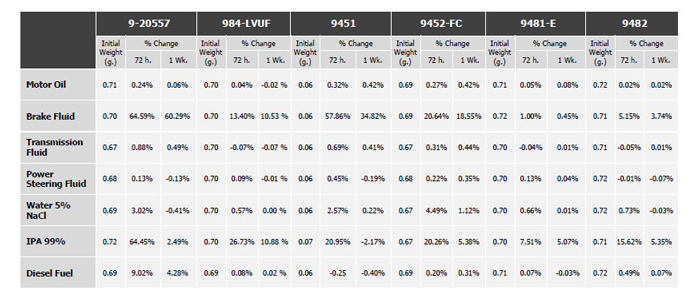保护您的印刷电路板
汽车电子电路最初只是用于车头灯和雨刷器的简单开关,但经过长足的发展,现已成为当今复杂系统中不可或缺的组件。 ADAS, 信息娱乐以及自动驾驶汽车设计。随着消费者对汽车安全性、舒适性和娱乐性的需求不断增长,制造商面临着寻找可靠、经济、高性能的电路材料的挑战,以最大限度地减少印刷电路板故障对这些系统的影响。
解决现场故障问题的一种方法是妥善保护印刷电路板,使其免受可能损坏和/或危及车辆安全和运行的液体的侵害。如果不涂上涂层,泄漏或腐蚀会损坏精密部件。三防漆是解决此问题的好方法,因为它们可用于在 PCB 上形成一层薄聚合物保护层,有助于提高电路在恶劣条件下的可靠性,包括湿度、灰尘、真菌、极端温度和其他污染物。
为了进一步调查这一问题,Dymax 对其六家主要企业进行了一项研究, 光固化三防漆测试其对汽车行业常用的七种液体的耐化学性。将三防漆涂在印刷电路板上,并使用 Dymax 5000-EC 泛光灯强度为 200 mW/cm 2然后将测试样品浸入测试液中 72 小时,然后取出并擦拭干净。将 PCB 放在室温下一周。记录样品涂层的初始重量以及浸泡 72 小时和一周后的重量。
下表显示了测试电路板的初始重量、室温下放置一周后的 PCB 重量以及重量变化百分比。结果表明,Dymax三防漆性能良好,因为浸泡 72 小时后的重量变化百分比很小,并且在放置一周期间继续下降。
对于设计需要耐受这些腐蚀性液体的汽车印刷电路板的制造商来说,Dymax光固化三防漆可能是正确的选择。如需有关您的装配的最佳化学和设备解决方案的指导,请联系我们的应用工程团队。

